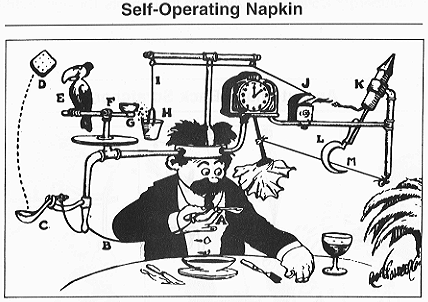When I see folks working hard at a repetitive task, using technology tools like spreadsheets, databases, and other “productivity” tools in a less-than-optimal way, I like to call them out as not being lazy enough. That always gets their attention – it’s a bit counter-intuitive, as they masterfully fly over the keyboard to tweak the data, move the files, look up the information, or clear the inbox in the shortest time possible.
I think that we should be “lazier” by getting the machines to do the work – via scripts, macros, and other automation. We live in a programmable world, after all, and a well-structured script, with descriptive comments, flexible parameters, running in a job scheduler and faithfully reproducing every step … a joy for my programmer’s heart to behold.

But you can take a good thing too far; a clever bit of automation can paper over the root problem – waste and inefficiency that we shouldn’t be burning time on in the first place.
One example – in my drive for Inbox Zero and more efficient use of eMail, I will write a rule that auto-files messages that I am cc’d on. Ok, near-term problem solved – I am not distracted by reading non-value-adding stuff. But if this email is unnecessary, why are people sending it to me in the first place? Some may feel the need to cover their butts and cc: the world on every decision; maybe I should connect with the aggressive sharer and develop our common understanding of stuff that I need to see. Automation, after all, is robotic and dispassionate in its consistency; if I autofile everything, I will surely miss something important (and filtering for “hey, this looks like something good” is not as easy as it sounds).
A better approach is to think “automation” – but take the time to drill into the root cause and tackle the tougher problem. I used to audibly groan when I was brought a large stack of invoices to sign, so my assistant suggested a rubber signature stamp. Nope, that’s not the point – why am I manually signing things in the 21st century? Can we leverage the systems around us and move to electronic signatures and minimum-spend automatic approvals?
Automation and efficiency are great – but if you automate a mess, you will get an automated mess. Elevate your level of laziness – don’t just automate, eliminate the work!






This Post Has 0 Comments